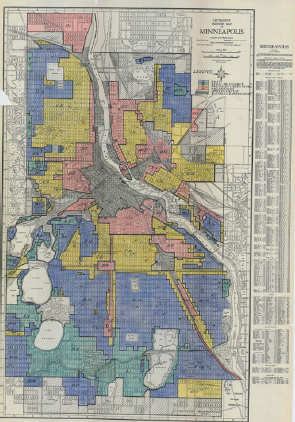California Coalition for Rural Housing
Housing advocates around the country are recognizing the power and importance of using data broken down by race and gender to advance racial equity through their legislative efforts.
The California Coalition for Rural Housing (CCRH) and Rural Community Assistance Corporation (RCAC) conducted a study to determine the current housing and living conditions of California’s tribal communities. Part of the research and data informed the “Final Statewide Housing Assessment 2025” created by the California Department of Housing and Community Development.
The research illuminates the disparities between American Indians in California and the general population. The study found that nearly one third of those who are living in California’s tribal areas live below the federal poverty line – more than twice the rate of the general population. American Indians also face a higher unmet need for housing rehabilitation and new construction. What housing stock is available is in substandard condition—over 60% of homes occupied by American Indian households were built more than three decades ago, and nearly one fifth need major physical improvements. They also have poorer water and wastewater systems.
CCRH and RCAC can demonstrate through these data the impact excluding tribal nations from state housing programs has had on American Indians. Excluding tribal nations has forced them to rely heavily on chronically underfunded federal resources. To correct this historic disparity, CCRH and RCAC recommended that state housing programs be reformed to allow California tribes and tribal housing entities to participate.
Baltimore Renters United
Baltimore Renters United (BRU), a coalition of community advocates, campaigned for the passage of Council Bill 20-065, “Right to Counsel in Eviction Cases”, which gives Baltimore City tenants the legal right to a lawyer in cases that may result in an eviction.
As part of their advocacy efforts, BRU utilized a research report prepared by Stout, The Economic Impact of an Eviction Right to Counsel in Baltimore City, to illustrate the disparities communities of color face regarding evictions. Due to historic segregation laws and practices, as well as continued disinvestment in Black communities, Black households are evicted at a 13% higher rate than white households within the same economic status. Black women are evicted at a 296% higher rate than white males.
In Baltimore, 140,000 eviction cases are filed every year and nearly 70,000 evictions are executed. Landlords and the courts evicted more than 537 families from August to November 2020. In those eviction cases, only 1% of tenants had a lawyer, compared to 96% of landlords. Approximately 6,500 families—primarily Black families—were displaced from housing. For tenants facing eviction, having legal representation is often the difference between housing and experiencing homelessness.
By effectively utilizing data broken down by gender and race, BRU succeeded in expanding tenants’ rights. Baltimore is now the seventh jurisdiction in the country to enact right to council to prevent homelessness and disruptive displacement, especially among Black communities.
 Minnesota Housing Partnership & Oregon Housing Alliance
Minnesota Housing Partnership & Oregon Housing Alliance
Many organizations are incorporating anti-racist principles into their operations, programs, and policy agenda - including NLIHC state partners Minnesota Housing Partnership and the Oregon Housing Alliance.
Minnesota Housing Partnership (MHP) established a Public Policy Advisory Group (PPAG) to review its policies and make recommendations on how to better ensure racial equity is centered in MHP’s work. Members of the PPAG represent a range of perspectives, backgrounds, and expertise and, over the course of five months, they developed an equity framework to guide MHP’s policy development. The equity framework was based on metrics such as: increasing access to safe, affordable housing for minority residents and increasing economic opportunities for minority developers, contractors, and sub-contractors. The group plans on continually expanding and refining these metrics.
The work done by MHP and PPAG resulted in letters being sent to elected officials and state leadership including to the commissioner of Minnesota Housing, urging her to increase resources for minority homeowners—particularly considering the impact COVID-19 has had on widening housing disparities for communities of color and low-income households. Other recommendations in the letter included using data to guide changes to policy and programs, preserving public land for public housing and affordable housing, supporting naturally occurring affordable housing, enhancing protections for workers, and including workforce development in Minnesota Housing’s strategies to end racial disparities.
Neighborhood Partnerships, the convening organization for the Oregon Housing Alliance, also adopted a racial equity framework which explicitly outlines objectives to advance racial equity in their housing work. The plan was developed over the course of a year by Neighborhood Partnership staff, their equity team, and the Center for Equity & Inclusion.
The Oregon Housing Alliance’s equity goals include developing an equity lens to assess policies and help create their 2021 legislative agenda, as well as to increase shared decision making with Residents Organizing for Change. To work towards these goals, Neighborhood Partnerships took numerous internal and external steps. Internally, they reworked their hiring and onboarding practices; utilized race and demographic data to guide resource allocations; altered their board’s term limits and diversified the members; and revised their procurement process. Externally, they launched a network of affordable housing tenants and have committed to ensuring the decision-making process at the Oregon Housing Alliance is more inclusive. To create accountability, they publicly posted their goals, outcome measures, and progress towards these goals on their website and updated members in their monthly email newsletters.
Neighborhood Partnerships also created a racial equity statement which recommits them to working towards “a better Oregon, one in which we all have access to opportunity, stability, and what we need to thrive.” It acknowledges that white people have created and benefitted from institutions, policies, laws, and systems of oppression which have denied people of color power, resources, and access. To achieve their goals, these systems need to be disrupted.